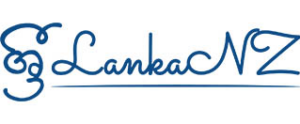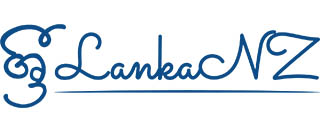I thought of writing this article about the media, its power, and responsibilities after having listened to the commencement address of the New Zealand Prime Minister (Hon. Jacinda Arden) to Harvard University on 26 May 2022. At the beginning of her speech, she said, “there are some moments in life that make the world feel small and connected.” She made this comment (I believe) to indicate that wherever you go, you may know some people around you. However, today with the help of communication technologies, people are connected irrespective of where they are, and at any time of the day. While modern communication technologies offer many valuable opportunities, the same technology could lead to many challenges, especially when people make the wrong choices when using such technologies. This article aims at all groups of demography in our society to think about how and when to use emerging media and communication tools and mechanisms that are enabled by rapidly advancing information and communication technologies (ICT). I will use some relevant statements from NZ-PM’s commencement speech to elaborate on each aspect.
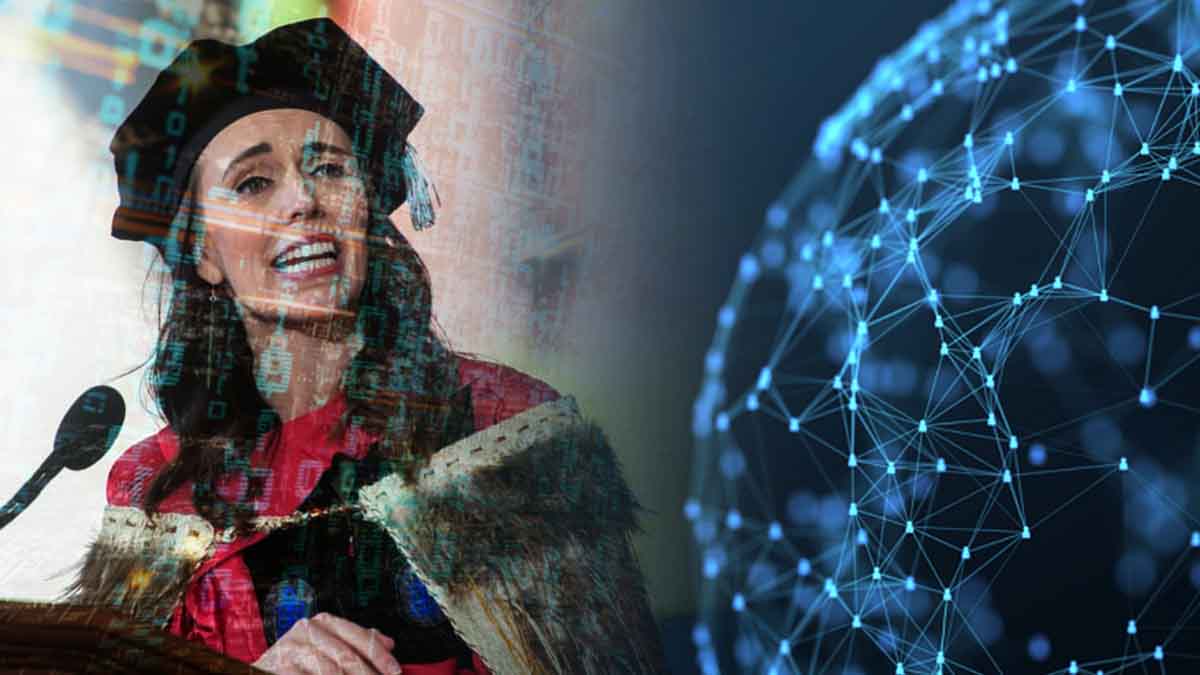
She said, “Thomas Ridge argues that the modern era of disinformation began in the early 1920s during the Great Depression in an era of journalism…He (Thomas Ridge) goes on to argue that it is since common waves including in the mid-2010, with disinformation reborn and reshaped by new technologies and internet culture.” Misinformation, disinformation and hate speech create major problems for many countries if not all countries worldwide. It is a challenging task to maintain a balance between free speech and its negative impacts. It poses such challenges as content is articulated by a person who has less or no skill to judge its impact on others. Social media are not generally limited and have no boundaries. That means it may be consumed by a large number of consumers, and with the help of the technology, consumers may engage with it by adding more content. This is analogous to throwing fuel to the fire. This is what happens in certain content when they are not intended to make good outcomes or negative impacts. There may be more ill effects despite good intentions. The fuel is supplied by technology such as Artificial Intelligence (AI) by their non-transparent algorithms. We are now transitioning to new territories that have been dominated by rapidly advancing technologies, and therefore some precautions are required while embracing those. I am cautioning this based on the observations that I have made over the last three to four decades. Societies, countries, and governments take time to understand the functioning of those technologies. The NZ-PM made several statements concerning social media. Social media could enable connectedness, swift access to information and content sharing. Some content may be useful and may convey valuable information. They could also carry factually wrong content that could have negative impacts on society at large. Due to the busy lives of people, swift and timely access to information is important. But authenticity and responsibility of the content need to be assured. Users as content creators are not qualified to make some of those judgement calls. This has an analogy to the function of a doctor. A trained medical officer such as a doctor or a nurse could make right and a better decision about what needs to be communicated, performed, or actioned to treat a patient.
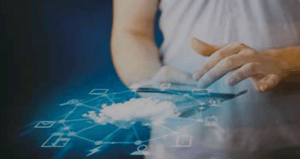
She (NZ-PM) said, “democracy can be fragile. This imperfect, precious way that we organise ourselves that has been created to give an equal voice to the weak into a strong that is designed to help drive consensus. The foundation of a strong democracy includes trust in institutions, experts, and government and this can be built up over decades but torn down in mere years. It takes for granted that a strong democracy relies on debate and dialogue. Even the oldest regimes can seek to control these forums. The youngest can seek to liberate them. It ignores what happens regardless of how long your democracy has been tried and tested. When facts are changed into fiction, fiction turns into effect. You stop debating ideas, and you start debating conspiracy.” As she mentioned, conspiracy ignores the reality of what we are now confronted by every single day.
In the past ten years, New Zealand has passed laws that include everything from the introduction of gay marriage and the banning of conversion therapy right through to embedding a 1.5-degree climate change targets into law banning military-style semi-automatic and assault rifles and the decriminalisation of abortion; these are significant issues, and they have not been without debate in difference. But they are examples of times where we have navigated times of deep change without, for the most part, leaving deep roots. Referring to the recent activities near New Zealand parliament grounds, she said, “but we have also seen the opposite. Whether it is democratic elections that erupt into violence or the COVID crisis emerging and exposing mistrust of experts, institutions and governments, western democracies are seeing it and experiencing examples in New Zealand is no different. Now I will admit to feeling some trepidation entering a discussion on how we strengthen our democracies when this issue is so easily and wrongly distorted and to being opposed to free speech. But that fear is overshadowed by a greater fear of what will happen to our democracies if we do not act to firm up our foundations. If we do not fight once again, our ability to argue our corners yes with the passion and fire that conviction brings, but without the vitriol, hate and violence. If we do not find a way to ensure difference, that space with perspectives, experience, and debate, gives rise to understanding and compromise does not instead become a division. In the face of entrenchment, our dialogue departs, the solution shatters and a crevice between us becomes so deep that no one dares cross to the other side.”
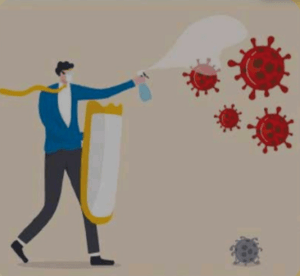
She reminded us at this juncture, rather than asking what caused it today, we want to talk about how we address it. Quoting her as an example, she said that differences were a part of her identity but never a source of isolation. This is quite important as many people feel isolated and this has a dramatic negative impact on their wellbeing. She reminded her school days by saying, “In fact, minus a generation that was set on the cusp of the Internet age, I remember the first person in my school who had access to the internet. …After … shut the office for the day, we would get the key and log on to his massive desktop computers, with screens so wide with the discs with tears to fit the whole thing and it was the 1990s the interface and even what we use the internet for in those days was different for a time it was almost as if the directory for this vast landscape did not exist. It was a modern ham radio. You would dial in and talk to someone, anyone. It was the spontaneity of connection that in some ways, mirrored real life. That is the opportunity to connect and expand, humans did what we have always done. We organised ourselves.”
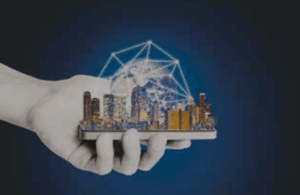
She said, “social media platforms were born offering the promise of connection and reconnection. We logged on, and our billions formed tribes and sub-tribes. We published our thoughts, feelings, and ideas freely. We found a place to share information, facts, fiction, and more cat videos than you ever thought possible. We found a place to experience new ways of thinking and celebrate our differences. But increasingly, we use it to do neither of those things. I doubt anyone here has ever created a group titled political views I disagree with but choose to enter into respectful dialogue with to better understand alternative perspectives.
As humans, we are naturally predisposed to reinforce our views, together with people like us, and avoid that dreaded sense of cognitive dissonance. We seek validation and confirmation reinforcement increasingly with the help of algorithms, what we seek, we assume sometimes before we even know we are looking. Now, I am not here to argue that social media is good or bad. It is a tool, and as with anything, it is the rules of the game and the way we engage with it that matter. But social media matters a lot, and perhaps much more than we thought.”
In March 2019, fifty-one people were killed in a terrorist attack in Christchurch, New Zealand. The entire brutal acts were live streamed on social media. The Royal Commission found that the terrorists responsible were radicalised online. In the aftermath of New Zealand’s experience, we felt a sense of responsibility. We knew that we needed significant gun reform and so that is what we did.
Also knew that if we want genuine solutions to the issue of violent extremism online, government, civil society, and tech companies should come together and change the landscape. The result was the Christchurch call to action, and more much has changed as a result, important things happened.
The time has come for social media companies and other online providers to recognise their power and act on it. That means upholding their own basic terms of service. That means recognising the role they play in constantly curating and shaping the online environments that we are in. Those algorithmic processes make choices and decisions for us about what we see and where we are directed. And at best, it means that the user experience is personalised. But at worst, it means the user experience can be radicalised. It means that there is a pressing and urgent need for responsible algorithm development and deployment. Now we have forums for online providers and social media companies to work on these issues alongside civil society and governments and we have every reason to do it.
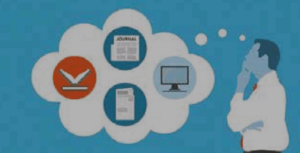
Let us start with transparency and how algorithmic processes work and the outcomes they deliver.But let us finish with a shared approach to responsible algorithms because the time has come to do it.” She said “Companies are only part of the answer. What we do as individuals in these spaces matters to our willingness to recognise our own preconceived ideas. Level of critique we apply to what we engage with and how we uphold our basic sense of humanity. When interacting with others.” There is a term that gets thrown around a lot, keyboard warrior. It is used to refer to someone who makes aggressive or abusive posts online, often anonymously. No, I like the name. In my mind when I read something especially horrific on my feed, I imagined it was written by a lone person acquainted with personal hygiene practices. Dressed in a poorly fitted superhero costume, one that is baggy in all the wrong places. Our keyboard warrior or not, though, it is still something that has been written by a human and it is something that has been read by one too.”
She reflected on some of that change by commenting on the quote in the old days, we had certain events that happened in societies. She said, “television reported the next day, everyone talked about it. Today, even that simple act has changed. What we consider to be the mainstream media outlets have proliferated, but ownership structures have not. Mainstream media have layers of accountabilities and journalistic expectations that others who also present information to us do not. There is competition in advertising revenue with subscription services and paywalls. All to aid in the survival of the fittest. With fitness now defined by how easy it is to monetise your content.

Amongst all those lies the fact we are not talking about how we access information to inform debate, but whether you can call it information at all. Now there is far more learner than I who argue were the source of the scourge of disinformation lies within your own candidacy and those who argue that the current problems of different fashions are the result of algorithms or trolls, but of quote asymmetric media structures, decades in the making. At this point, the acceleration of the information and disinformation flow that comes with each new technology that enables mass duplication and distribution from photocopiers to cassette tapes, the only thing that has changed is speed. As Ridge concludes, either way, the stakes are quite enormous for disinformation erodes the foundation of our liberal democracy, our ability to assist facts on the merits and adjust the course accordingly.
Diversity of voice in mainstream media matters. The responsibility of social media matters, teaching our kids to deal with disinformation, the role we play as leaders in all matters, but so do how you choose to engage with information, deal with conflict, how you confront, debate, how you choose to address being baited or hated in all matters, and the overwhelming challenges that lay in front of us and our constant efforts to reach into the systems, the structures the power do not overlook, the a simple act that is right in front of you.”
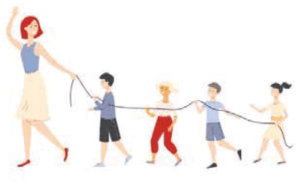
The impact that we each have as individuals is to choose to treat differences with empathy and with kindness. Those values that exist in the space between difference and division, the very things we teach our children, but then view as weakness in our leaders, the issues we navigate as a society after all only, intensifying the disinformation will only increase the poll into the comfort of our tribes who will be magnified, but we have it within us to ensure that that does not mean we fracture.
She said, “we are richer for our differences and poor for our division. Through genuine divided dialogue, through rebuilding trust and information and one another through empathy. Let us reclaim the space in between. After all, there are some things in this life that make the world feel small and connected. Let kindness be one of them.”
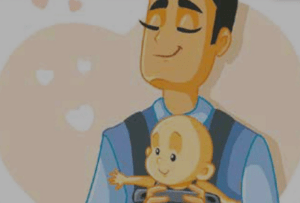 We have seen good things that AI could do, but what it can do is quite limited compared to what humans can do. Let me draw your attention to the following poem lines that I have collected from a childhood friend, who is much younger than me and has been living in Japan, posted on his Facebook. The poem is about how precious his two kids (the son and the daughter, both are called ‘Puthuni’ in Sinhala, and in Māori, mokopuna) are to them.
We have seen good things that AI could do, but what it can do is quite limited compared to what humans can do. Let me draw your attention to the following poem lines that I have collected from a childhood friend, who is much younger than me and has been living in Japan, posted on his Facebook. The poem is about how precious his two kids (the son and the daughter, both are called ‘Puthuni’ in Sinhala, and in Māori, mokopuna) are to them.
If you know the Sinhala language, try translating the following part of a Sinhala song by yourselves and compare it to what AI could do today. Like us, AI has to learn a lot in semantics beyond just translating words and connecting them. Thank you for your time reading and effort to learn something new, if there was any.
‘සිරුරේ දුවන්නේ මගේ ලේ නොවැ පුතුනේ….
කුසයේ නොදැරුවත් දිවි බර මට දැනුනේ….
මහමෙරකට උසයි දරුපෙම හදපතුලේ….
පුදුමයි පුතුනි කිම මගේ ලේ කිරි නොවුනේ..’
Facebook translated this as below.
“It’s not my blood that runs in my body son
I felt life even if I didn’t forget it in the womb
Childhood is high in the bottom of the heart
Amazing son, why my bloody daughter.”
The literal translation should give the following meaning.
‘It is my blood that runs in your body.
I braved the burden of life though you were not born in me
So as high as Mount Everest, the fatherly love
Wonder, my son, why my blood not turned into motherly milk.’
Disclaimer: The author has taken the best care to record the text of NZ-PM’s commencement speech. There may be omissions that were not intentional, as the author does not have access to the text for cross-reference or verification. The article has been written bonafide share NZ-PM’s good thoughts.
By Dr Amal Punchihewa – Palmerston North

